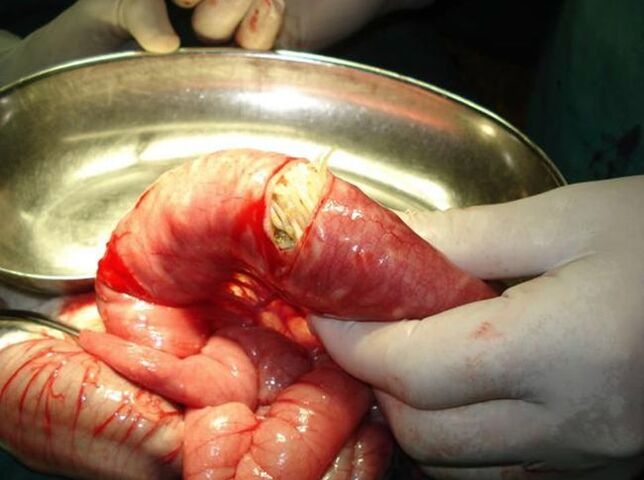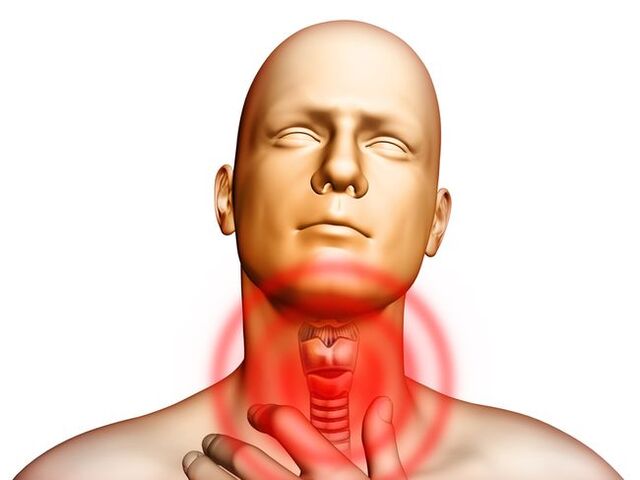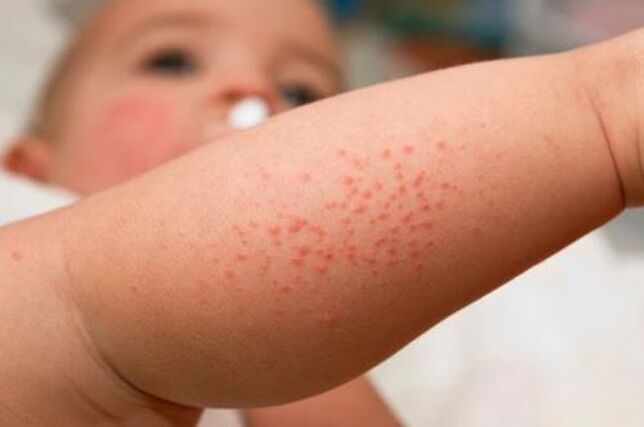Worm infestations belong to a common group of diseases in humans and animals. It is caused by the penetration of various worms into the body, of which there are more than three hundred species in our time. Parasites are mainly localized in the intestines and liver, but some species can penetrate the lungs, heart, brain and other vital organs, which can lead to very serious consequences. It is important to detect the presence of helminths in the body as early as possible and take measures to eliminate them in order to avoid health problems. After all, this disease can have many consequences, up to and including death. However, it is quite difficult to determine the presence of a helminthic invasion in the body, since the symptoms are similar to other diseases and it is difficult to say exactly which infection is attacking the body. It's important to understand what to look for when contacting a parasitologist.
Types of helminths dangerous to humans
Worms that pose a danger to humans are divided into two groups:
- Cavities - pinworms, roundworms, whipworms, broad tapeworms and other parasites that live in the intestines.
- Tissues - Echinococcosis, paragonimiasis, cysticercosis and other types of parasites that can spread and affect all major internal organs.
Most often, the following types of helminthic invasions in the human body are diagnosed: enterobiasis, ascariasis, trichuriasis, strongyloidiasis.

Methods of infection with worms
There are many ways how parasite larvae get into the body, among them the main ones can be distinguished:
- Contact - Larvae are transmitted from person to person.
- By an insect bite.
- through the floor
- through the water.
- With dust particles.
- Of food that has undergone insufficient heat treatment.
- fecal-oral.
The first manifestations of worms in the body
Once in the human body, worms do not manifest themselves immediately. This is the main problem. The first signs of helminth invasion may appear only after two weeks. These include:
- increased body temperature;
- skin irritation;
- aching pain in abdomen;
- loss of appetite;
- the appearance of a headache;
- disorder of the intestine.

If you consult a doctor in a timely manner after the first signs, many troubles can be avoided.
Symptoms of the presence of worms in the human body
Parasites eat most of the nutrients and vitamins in the body, which significantly affects well-being.
Symptoms of helminthic invasion in adults:
- the presence of allergies;
- the appearance of acne and boils;
- annoying cough;
- reduced immunity;
- depressed and irritable state;
- pain in the joints;
- Disorders of the digestive system.
Symptoms of worm infection of the lungs
Infection of the lungs with helminths can be asymptomatic for several years. After entering the human body, parasites actively multiply when a significant amount is reached, symptoms such as:
- weakness and lack of strength;
- dyspnea;
- wet cough;
- chest pain and discomfort;
- nausea and vomiting;
- decreased appetite and weight loss.
Adhesions form at sites where parasites enter the lungs, and over time the shape of the lungs changes. Parasites provoke such diseases as pneumonia, asthma, bronchitis and pleurisy. In an advanced case, a fatal outcome is likely.
The main signs of intestinal helminthiasis
The habitat of worms in the human body is mostly the intestine. The very first symptoms appear when the helminths begin active reproduction:
- indigestion;
- nausea;
- Flatulence;
- weakness and tiredness;
- itching in the anus;
- Dermatitis and eczema on the skin.
Parasites poison the body with the products of their vital activity, and all this leads to a general state of weakness and apathy.

Symptoms of the presence of worms in the stomach
This place is also a favorite for worms, the symptoms are as follows:
- frequent indigestion, constipation can suddenly turn into diarrhea;
- pain in the stomach and navel;
- decreased appetite;
- constant feeling of hunger;
- teeth grinding;
- Insomnia.
Signs of Dirofilaria infection
This type of parasite occurs in humans through insect bites. There are two forms of dirofilariasis - ocular and cutaneous:
- The cutaneous form is the most common and can result from a mosquito bite, where a small seal forms that gradually migrates under the skin and causes discomfort. If you do not seek qualified help in a timely manner, severe redness and pain will appear at the site of the lesion.
- In the eye form, the parasite lives under the skin of the eyelids and there are chances of invading the eyeball. Symptoms include redness and swelling, conjunctivitis, and itching in the affected area, and the person constantly feels a foreign object in the eye. All this is accompanied by insomnia, increased nervousness and general weakness.
Symptoms of helminths in the throat
The neck is one of the most sensitive places in the human body. When it becomes inflamed, we immediately feel pain and discomfort, but sometimes you can feel a strong tickling and stirring in the throat, which is often caused by helminths. It is worth noting that parasites cannot live in the throat, since this is not a favorable habitat for them. It happens that parasites developing in the digestive system grow so large that they pass through the esophagus into the throat, which is usually accompanied by attacks of choking and severe coughing.

Symptoms of helminthic invasion of the brain
Brain damage usually occurs through the nasal passages. Invading the brain, helminths infect the cortical center, destroying brain cells and actively multiplying. Instead of dead cells, dead tissue remains, which leads to inflammatory processes in the brain. If the patient does not receive urgent medical attention, he can die within two weeks.
Symptoms:
- severe pain in the head;
- to throw up;
- hallucinations;
- weakness.
Symptoms of helminthic invasion in human blood
Blood is the habitat of various types of helminths, which have a very adverse effect on the body. Symptoms include:
- Dizziness;
- fever attacks;
- pain in the joints;
- numbness of the limbs;
- Enlargement of the lymph nodes.
How to recognize a helminthic invasion by rashes?
One of the main manifestations of the presence of helminths is a sharp deterioration in the condition of the skin and the appearance of various rashes on it. This is due to the toxins released by the parasites. The most characteristic signs are as follows:
- hives;
- severe itching;
- allergic rhinitis;
- Dermatitis;
- Psoriasis;
- the appearance of papillomas;
- fragility of nails;
- increased hair loss;
- acne and furunculosis.
But you should not attribute all skin manifestations to the presence of worms in the body, the reasons can be different and only a dermatologist, after examinations, can determine them.

Symptoms of helminthiasis in the form of metabolic disorders
Disturbances in metabolic processes in the body should also alarm. If, with a normal diet, a sharp weight loss or gain, anemia or hypovitaminosis was detected, then one should think about an infection with parasites. Rapid weight loss can be due to the worms absorbing all the nutrients ingested by a person. Weight gain can be provoked by toxic substances secreted by helminths. In response, the body requires more food to use to remove toxins.
Immune system symptoms
Since the parasites eat all the nutrients and vitamins that get into the body, there is a strong suppression of the immune system, and the person becomes susceptible to all infectious diseases and inflammatory processes of various organs. Chronic diseases are also on the rise.
nervous system
From the side of the nervous system, helminthic invasion is manifested by the following symptoms:
- Insomnia;
- increased fatigue;
- poor memory;
- depressed state;
- decreased activity and performance.
Signs of infection in children
Notice! In children, the presence of pinworms and ascaris is most often diagnosed.
Worm infestation in children has the following symptoms:
- poor appetite;
- pale facial skin;
- dark circles under the eyes;
- bad sleep, grinding teeth in a dream;
- headache, dizziness;
- general state of lethargy and weakness;
- the presence of worms in the child's stool;
- itching in the anus;
- indigestion;
- a large amount of saliva in the mouth;
- lethargy and fatigue;
- an increase in body temperature for no apparent reason;
- allergic reactions, dermatitis, urticaria;
- inflammatory processes in the genitals;
- bad breath;
- Fever;
- annoying cough;
- nausea and vomiting;
- frequent colds.
Advisory! If a baby has three or more signs, you should see a doctor right away. Often, even a fecal exam will not provide accurate results, so undergoing a full physical is most effective.
It is important to understand that a small number of adult helminths in the body in adults and children almost does not cause symptoms of helminthic invasion. It is possible to confirm or deny infection only by passing laboratory tests and studies prescribed by a parasitologist on an individual basis.
Diagnosis of helminthiasis
Since it is possible to treat the body from parasites only after they are detected, and the symptoms of infection are similar to other diseases, competent diagnosis is important. Their methods include:
- Serological analysis - detection of helminth antibodies in the blood;
- Analysis of feces - helps to identify the presence of larvae and fragments of adults;
- Coprological examination - the study of scraping, which is carried out near the anus;
- check for dysbacteriosis;
- CT scan;
- endoscopy;
- Ultrasonic.
It is easy to become infected with worms, but it is difficult to treat, especially in chronic forms of helminthic invasion. The course of treatment includes antiparasitic drugs, immunomodulators and sorbents. The therapy regimen is prescribed only by a doctor, self-medication can be not only useless, but also dangerous.
Preventive measures against infection with helminths
Prevention of helminthic invasion is extremely important for both children and adults. If you follow certain rules, you can significantly reduce the likelihood of infection with parasites. The presence of helminthic invasion in humans is usually due to the lack of basic hygiene:
- Be sure to wash your hands before eating food, coming home from the street, after contact with animals;
- well, preferably using special products, wash fruits and vegetables before eating or scald them with boiling water;
- drink only purified or boiled water;
- try to avoid insect bites;
- Fish, meat and other similar products undergo thorough heat treatment;
- Make sure the child's nails are trimmed short.
- Wash children's toys regularly with special products;
- be sure to boil the items that the patient used for five minutes;
- twice a year to have a child and an adult examined for the presence of helminths;
- to wean the child from putting hands and other objects in the mouth, especially those that have been in contact with the earth.
The implementation of these measures is not very difficult. Your observance is enough to protect yourself and your children from parasites as much as possible. If something was missed and symptoms of helminthic invasion appeared, treatment should be started immediately in order to avoid complications.
























